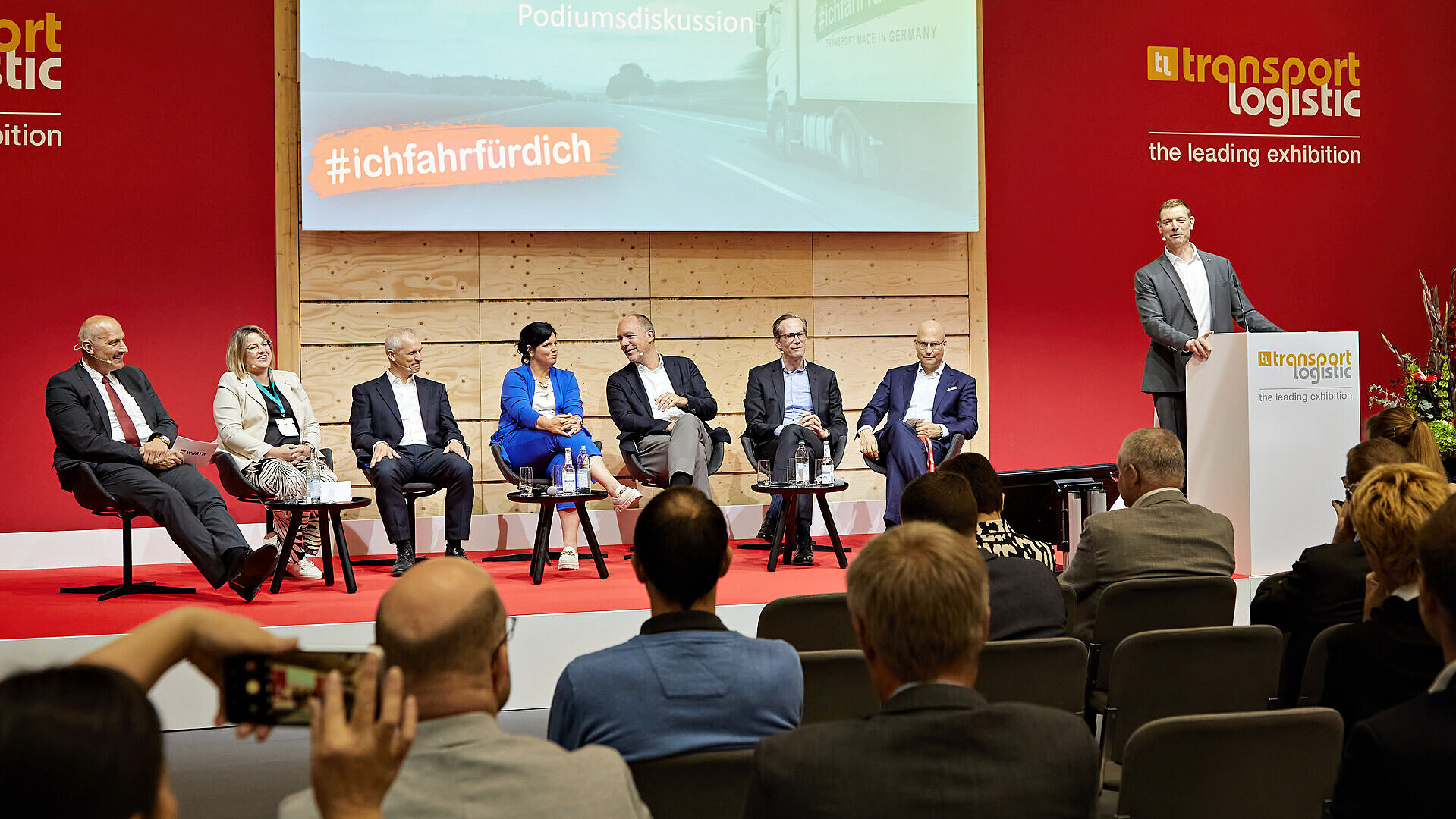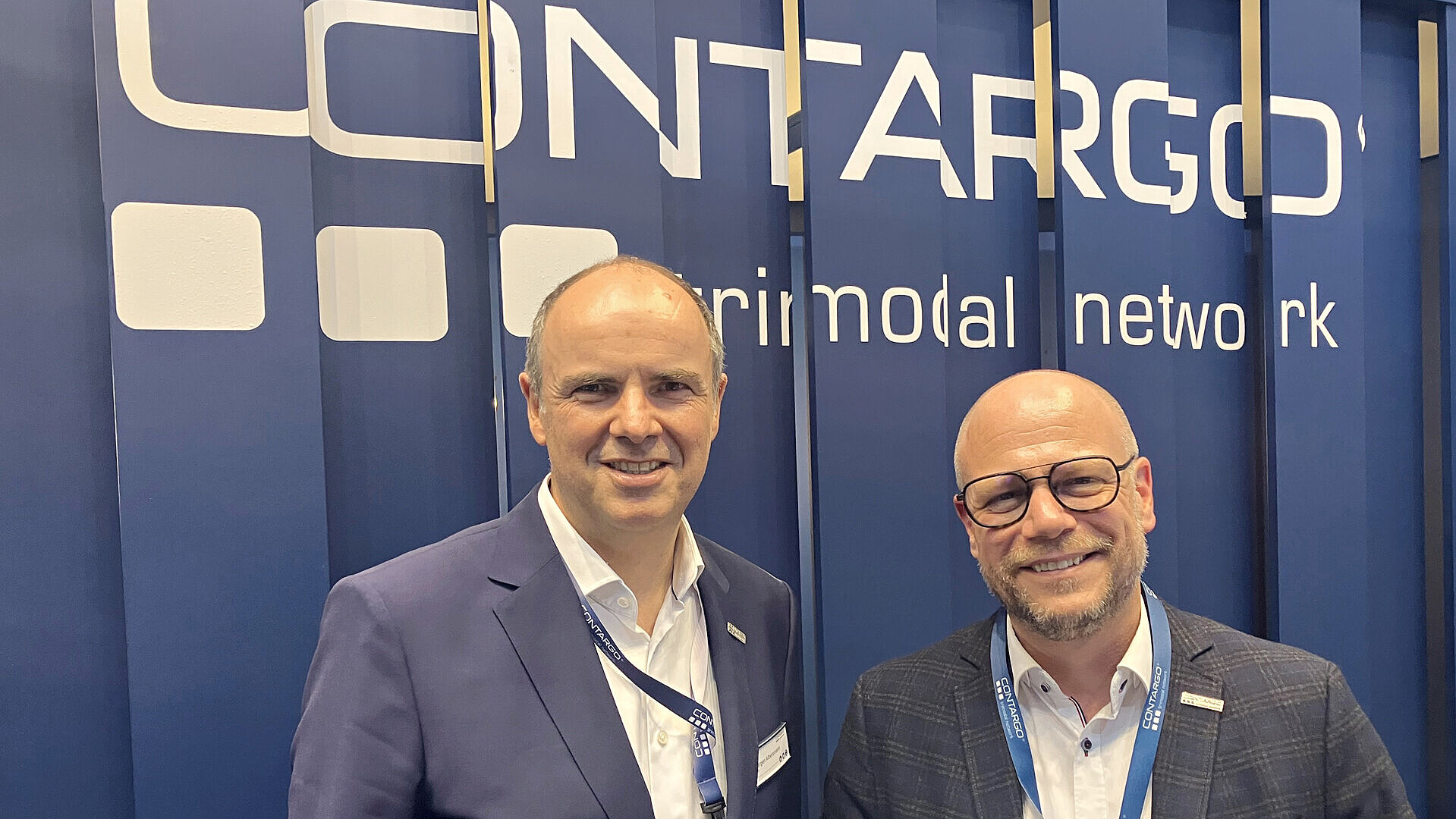
Road freight transport grapples with the challenges of change

To kick off the transport logistic event programme, the German Association of Road Haulage, Logistics and Waste Disposal (BGL) held a panel discussion on the state of the transformation of road freight transport in Germany. Dirk Engelhardt, spokesman for the association’s executive board, gave a brief overview of the scale of the task ahead: the current forecast by the Federal Ministry of Transport predicts a 54 per cent increase in road freight transport – with currently 1,724 purely electric vehicles, or 0.22 per cent of all vehicles registered with the toll operator Toll Collect.
The public charging infrastructure is still completely lacking, with only 10 hydrogen filling stations in the whole of Germany. If the transformation is to succeed, the industry needs significantly more support from politicians, Engelhardt continued. ‘We pay more than 15 billion euros a year from the transport industry in truck tolls, and we need to get significantly more back,’ Engelhardt demanded, referring to the maintenance of transport routes and the expansion of charging infrastructure. There is a lack of truck parking spaces, thousands of bridges need to be renovated and the shortage of drivers has exceeded 120,000 professional drivers.
Empowering Women in Succession
Transport entrepreneur Dagmar Altmannshofer from the transport company of the same name in Neuötting, Upper Bavaria, emphasised that, given the major challenges facing small and medium-sized enterprises, significantly more women from owner families should be considered for succession within the family. ‘Women are now well educated through study and apprenticeships; they can do the job,’ she emphasised. Given that almost 75 per cent of company owners are over 55, it is important that they are also asked. It is time for the industry to accept that women in leadership positions are the norm. ‘This is one of the biggest issues for the future of small and medium-sized enterprises,’ she highlighted.
The Federal Office for Logistics and Mobility (BALM) supports companies with its highly digital traffic controls using sensory checks and electronic register queries, emphasised BALM President Christian Hoffmann. In cooperation with the industry and the BGL, the authority also helps to ensure fair competition, Hoffmann continued. With the truck traffic portal launched at the start of the trade fair, which was developed and is operated by toll service provider Toll Collect, BALM also makes anonymised toll data available to the industry. ‘We know the needs of the industry and we know that a strong logistics sector is essential,’ emphasised Hoffmann. The agency is the largest funding provider of the Federal Ministry of Transport.
Political Regulation Becomes a Challenge
Christian Renners, managing director of trailer manufacturer Kögel, pointed out the challenge posed by increasing political regulations. ‘If we do not comply with the provisions of the UNECE R 155 directive on cybersecurity by the middle of next year, we will no longer be allowed to sell our products,’ he explained.
Thomas Wahl, managing director of logistics and quality at screw manufacturer Würth, cited the shortage of skilled workers as the biggest challenge for his company. In production, Würth must respond to demographic change by expanding automation. However, the company can only maintain the high sales of its products with a strong skilled trades sector as its main customer group.
Vehicle manufacturer MAN is prioritising battery-electric trucks, as they offer the greatest energy efficiency, reported Frederik Zohm, member of the executive board for development. ‘We can convert 75 per cent of 100 per cent solar energy into drive energy,’ he explained, compared to only 15 per cent with e-fuels. On steep downhill stretches, such as from the Brenner Pass to Bolzano, electric trucks can also recover almost 40 per cent of their energy through recuperation. ‘The price of the energy used will become a new competitive factor,’ he emphasised. For electric vehicles to achieve a breakthrough, the Europe-wide expansion of the charging infrastructure in accordance with the AFIR regulation and a long-term exemption from the CO2 toll are necessary. (loe)



